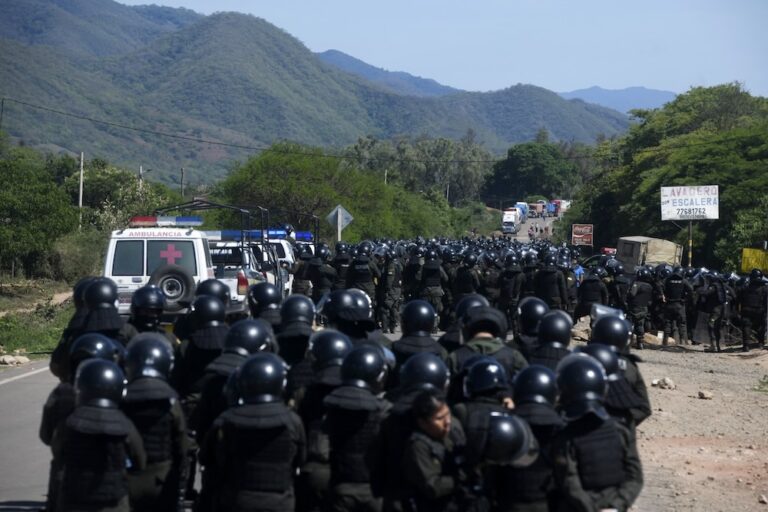In an open letter to the president of the legislative assembly, 24 IFEX members express concern over two articles in the proposed Law against Racism and All Forms of Discrimination.
(ANP/IFEX) – 7 October 2010 – In an open letter to the president of the legislature, 24 IFEX members express concern over two articles in the proposed Law against Racism and All Forms of Discrimination:
Your Excellency,
Álvaro García Linera
President of the Legislative Assembly of the Plurinational State of Bolivia
La Paz, Bolivia
We, the undersigned free expression and human rights organisations, express great concern over Articles 16 and 23 contained in the proposed Law against Racism and All Forms of Discrimination, which is pending approval by the Legislative Assembly, as they are detrimental to media freedom in Bolivia.
According to Article 16 of the bill, “any media outlet that endorses or publishes racist or discriminatory ideas will be liable to economic sanctions and the suspension of its operating license”.
Article 23 (previously referred to as Article 24 in draft versions of the proposed law) stipulates that when a crime is committed by a journalist or the owner of a media outlet, the individual will face “a prison sentence of one to five years” and “will not be able to claim immunity or any other privilege”. The Printing Law currently provides the legal framework for offenses committed by journalists in Bolivia.
We applaud efforts in Bolivia and around the world to eliminate discrimination and racism as these are human rights violations. However, it is extremely worrisome that the proposed law, which was approved by the Chamber of Deputies in Bolivia and is now before the Senate, includes two articles that endanger free expression.
In a 13 September letter to the president of the Senate, the Honourable René Martínez, the National Press Association (Asociación Nacional de la Prensa, ANP) urged this legislative body to do all it could to ensure that the bill does not contain any elements “which would have disastrous effects for free expression on the continent”. Were this law to be passed without any amendments, journalists would face prison sentences, and media outlets would be at risk of losing their licenses, the ANP stressed.
The Declaration of Principles on Freedom of Expression of the Inter-American Commission on Human Rights of the Organisation of American States establishes that “Journalistic activities must be guided by ethical conduct, which should in no case be imposed by the State”. Bolivian journalists’ organisations have developed their own codes of ethics and tribunals that punish inappropriate conduct.
Despite the condemnation of Article 16 and Article 23 by media organisations in Bolivia, President Evo Morales expressed his hope that the law would be passed without any amendments during a speech he delivered on 19 September at Toro Toro in southern Bolivia. President Morales has also called on organisations that support him to speak out in favour of the law as it was originally intended.
Your Excellency, we urge you to do all you can to ensure that the law does not introduce preventive censorship by removing any references to the media, journalists and social communicators from Article 16 and Article 23.
Such a gesture would give credit to the Legislative Assembly and the Bolivian government for demonstrating its respect for free expression, a fundamental cornerstone of any democratic society.
Sincerely,


